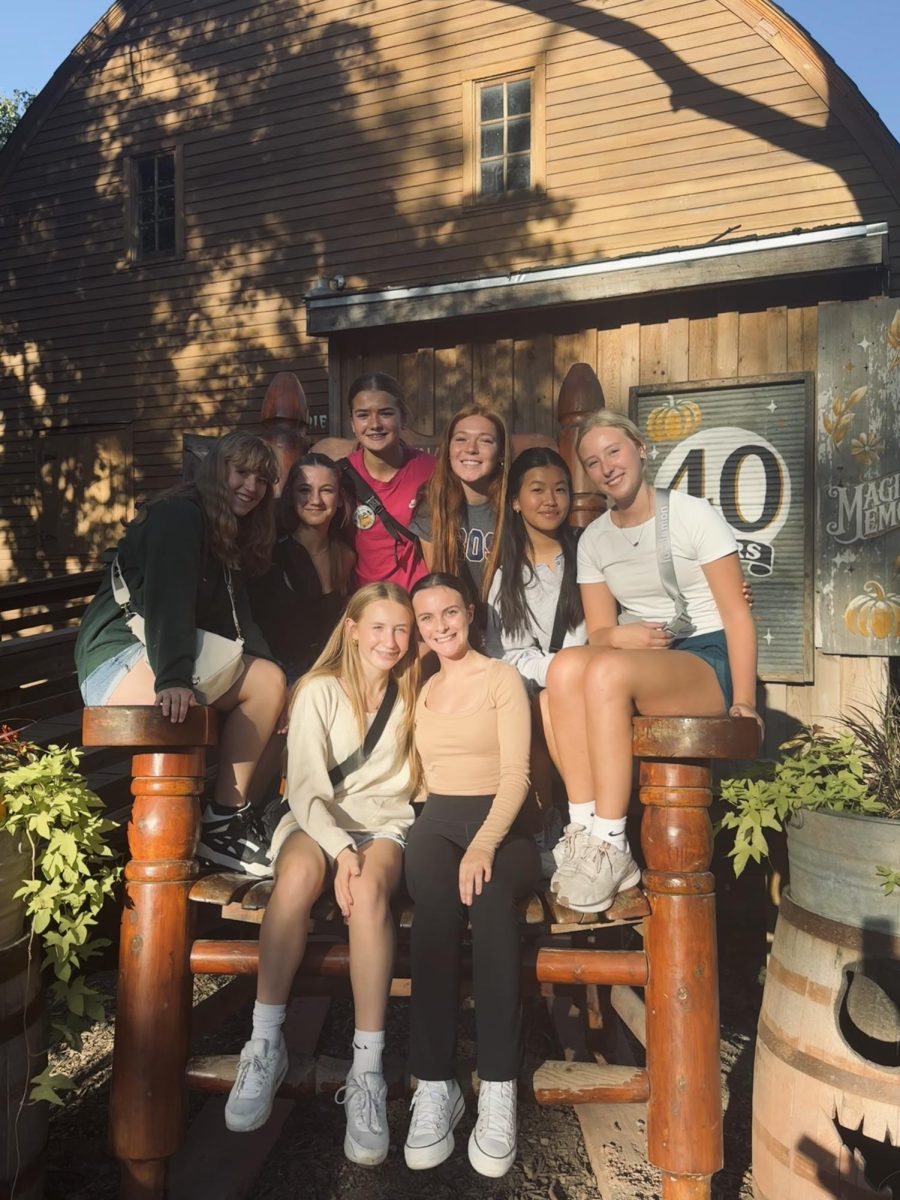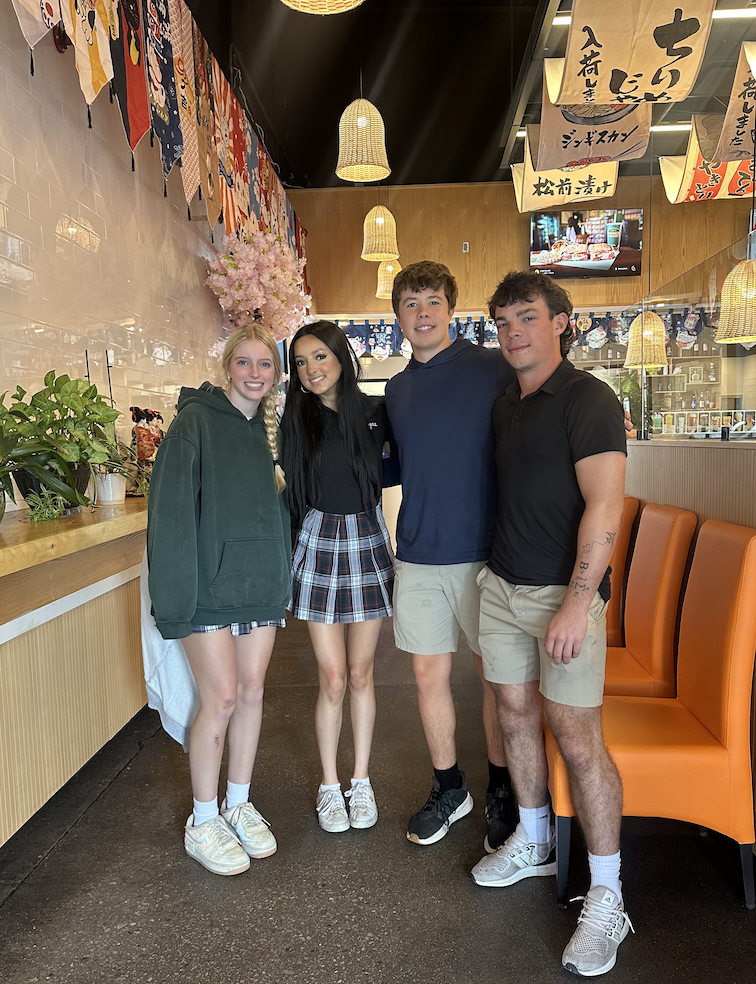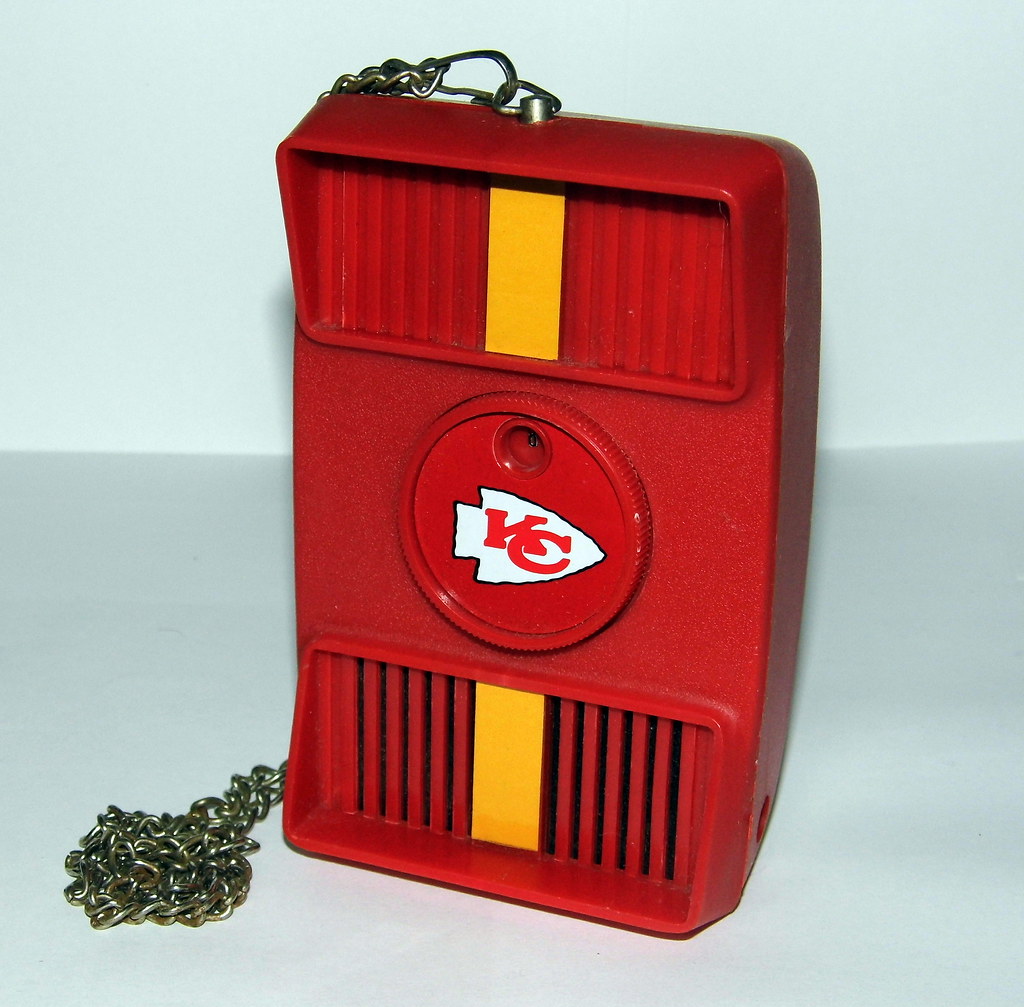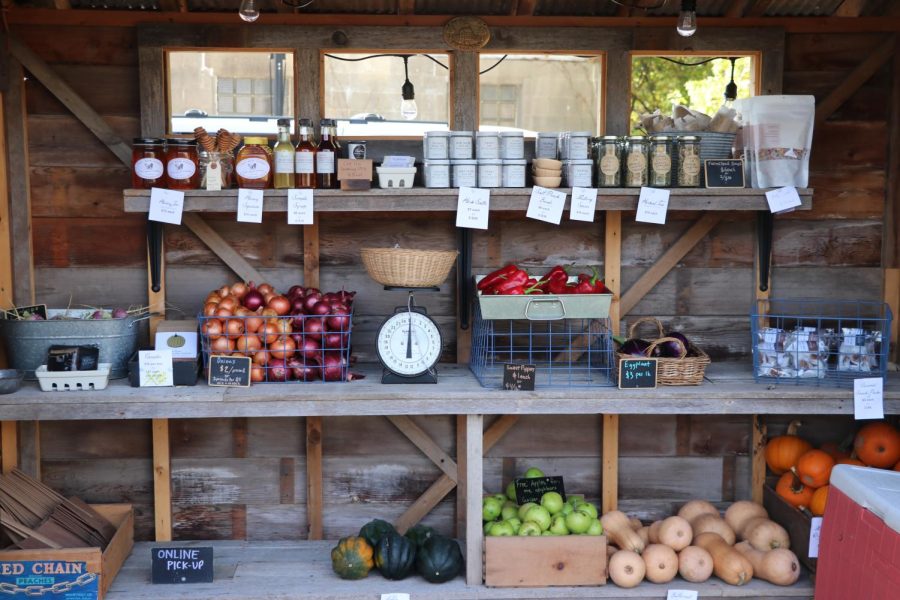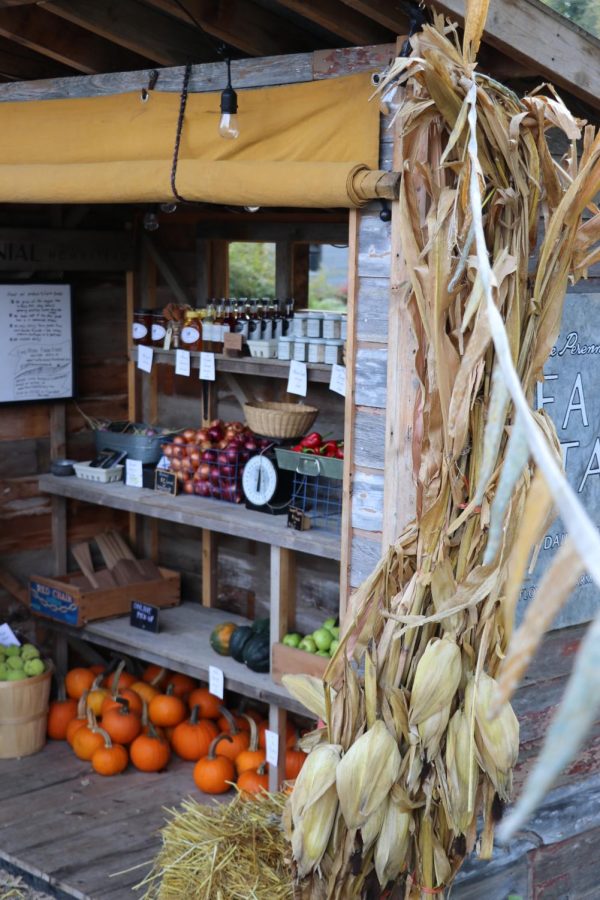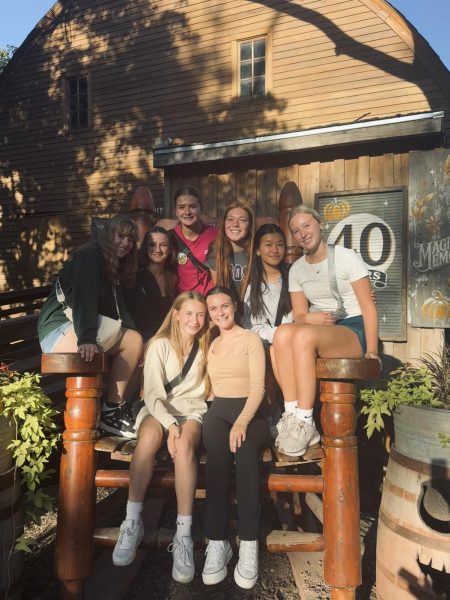Standing Up for Local Farming
Perennial Homestead in Ponca Hills sources local ingredients and creates products with loving attention to reimagine what farming should be.
Perennial Homestead’s farm stand on Ponca Road, which is stocked annually with seasonal produce and food items made locally.
Is there any aspect of our lives we take more for granted than where our food comes from? We all eat multiple meals a day, yet how often do we stop and think about the people and places involved in getting that food in front of us? Last month our feature story focused on the small team in Worthington Dining Hall who work hard every day to prepare healthy meals for the Brownell Talbot community, and who help ensure uninterrupted learning throughout the day. This month we’re stepping off campus to visit an area farm, Perennial Homestead in the Ponca Hills area, directly involved in growing, sourcing, and producing food, and that has also found a distinctive way to distribute those foods to those interested in supporting local agriculture.
Pulling up to the property of Perennial Homestead, after driving through the rolling hills north of I-480 on the road to Fort Calhoun, the first thing the visitor encounters is the farm stand—a three-sided wooden structure with built-in shelves stacked top-to-bottom with fresh produce, baked goods, seasoning salts, and other products that are made onsite or nearby. While some version of the farm stand, where food growers set up an area for people to buy produce directly, have been around for about as long as people have been growing food, the stand at Perennial Homestead is different both for its attractive appearance and for its system of exchange: they rely almost exclusively on the honor system, in which customers purchase their goods by leaving cash (and now Venmo) in the designated area and then drive, bike, or walk away at any time of day, in any weather, and without necessarily encountering the farmers. The food stand is a relatively new addition to the farm, though.
When Ms. Yahnke moved to the Ponca Hills area just outside of Omaha from a farm in the Loess Hills of western Iowa, she already knew that she wanted to showcase farmers in a unique way, and an honor-based food selling system was just the thing. Originally in the form of a trailer, Ms. Yahnke worked to make sure her customers knew exactly where every ingredient came from. Public support for this endeavor was so great, however, that on her fourth year of selling her goods, Ms. Yahnke made a permanent food stand in the trailer’s place, which, with some slight renovations, is the same stand that exists today. Even though she had hiccups with her stand not being stable enough to weather strong winds, grappled with legal permits that wouldn’t allow her to make what she wanted, and struggled to accommodate the huge turnout of an activity she thought wouldn’t gain much traction, Ms. Yahnke has remained steadfast in her belief that she wanted to contribute to making food as transparent and sustainable as possible.
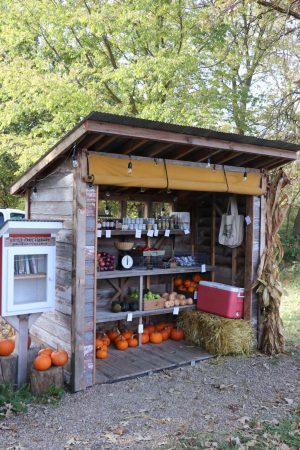
Ms. Yahnke’s passion about keeping agriculture local and promoting the sort of market farming that Perennial Homestead practices year-round is clearly reflected in the products that they make onsite and that can be purchased at the farm stand or on their website. The seasoning salts—which combine unique blends of herbs with other flavorings like mushrooms, garlic, and even wild nettles—are among the most popular items at the farm stand, and one of the best ways to experience the vision of Perennial Homestead. A challenge of food growers and producers in the Midwest and Great Plains, where the growing season is dictated by the weather, is finding ways to get products to consumers from late fall to early spring (and obviously including the entire winter).
Perennial Homestead’s seasoning salts work around this problem by capturing flavors of the region in a container that can be easily stored in the pantry and then enjoyed year-round sprinkled on potatoes, mixed into soups, or rubbed into a steak before it hits the skillet. The spices that sell the most are the onion and rosemary salts, but the nettle salt is the most talked-about on social media platforms. Ms. Yahnke makes sure to keep up with the latest social media trends in order to cater to the largest audience, so her stock is constantly changing and adapting to her followers’ tastes. For example, her sumac and elderberry simple syrups always grace the shelves in the fall, but take the backseat to let fruitier flavors shine in the warmer months.
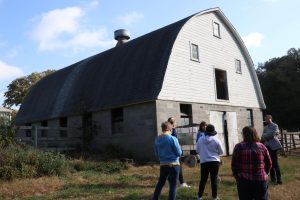
The farm stand at Perennial Homestead is open 24/7 at 12505 Ponca Road. Visitors can go in any time of the day and shop at their convenience. They have a great selection of items, including simple syrups, seasoning salts, honey, caramel candy, and a wide range of fresh produce (depending on what’s in season). They even have their own totes that can be purchased to carry items home. Those preferring to order products online can find their expanding range of items on their website. Under “Farm Stand” in the “About” section, there is also an option to pick up an order onsite. Following Perennial Homestead on social media is a convenient option for finding out about events they host at their farm, such as their Fall Festival, which is a great way to kick off autumn and meet others who are interested in local agriculture. A few area restaurants also feature products from Perennial Homestead, especially those whose menus make an effort to incorporate locally grown foods, like Kitchen Table in the Old Market and Au Courant in Benson. With an ever expanding range of products, and a growing community of loyal customers who are hungry for the type of farming that Perennial Homestead promotes every day, there is no doubt that there will be many more opportunities to encounter their products in the near future.
We live in a time and place in which our dining options are seemingly infinite, which again often leads us to take our choices about food easily for granted. Being more thoughtful about where our food comes from, and who is involved in getting it to our plate, has many benefits. On the one hand, knowing the source of our food can help us attain a greater appreciation for the place that we live, and the blessings that come from a soil and climate capable of producing such a cornucopia of fruits, vegetables, legumes, and herbs. On the other hand, having more direct encounters with the people who grow, harvest, store, and distribute those foods can also open our eyes to the hard work and incredible patience that goes into just about every bite we take. Next month we plan on continue our exploration of food, taking a closer look at those who cook food in our homes.

Fruzsina Roka is a senior who has been at Brownell Talbot for three years. She joined Verbatim three years ago, but has had a presence in several other...

Katie is a senior at Brownell this year. She participates in volleyball, science olympiad, and theatre. She has a passion for campus history that is shown...

